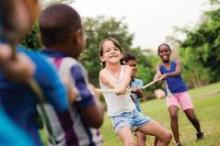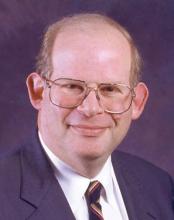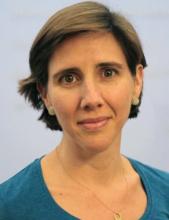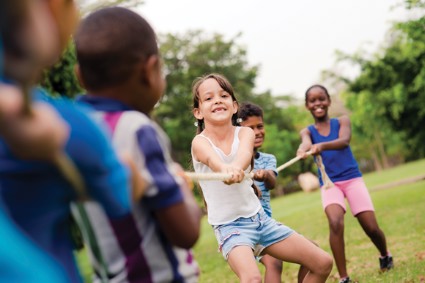User login
With the summer approaching, you are likely getting bombarded with health forms to fill out for summer camps, and fielding questions from parents like, "What age is best for sleepaway camp?"
In addition to simply filling out forms, consider taking the opportunity to help parents in the summer-planning process. Summer planning should be used as an opportunity to do much more for children than just fill their days or augment their college applications. You can help parents bring a developmental perspective to their planning by encouraging them to use the summer experience to help build their child’s self-esteem and autonomy.
Encourage parents to step back and assess their child’s strengths and weaknesses and consider what experience might make a difference in their child’s life. For instance, the summer can be used to help a shy child feel more comfortable with peers, to encourage a fair athlete to become a better athlete or help a passionate athlete compete at a higher level, to encourage a child with a budding interest in theater to give it a try, to help an obese child lose weight or a weak child gain strength, or to help an adolescent with learning problems and low self-esteem gain confidence by succeeding in a summer job.
Taking it a step further, you can encourage parents to consider the quality of the child’s friendships during summer planning. Consider asking parents the following questions: Does your child have a group of more superficial friends but struggle with the competitiveness and compromises of a one-on-one friendship? Does your child have only one close friend and no others? Could the appropriate friend facilitate or enrich the summer experience? For a child with a math disability, what is the relative gain of a summer spent with a math tutor instead of friends? The answer: It will probably feel like punishment. Instead, encourage parents to focus on cultivating skills such as initiative, discipline, patience, and frustration tolerance through enhancing an academic strength (like computers or theater), instead of focusing on a weakness.
While some of these options seem obvious, setting reasonable expectations, fitting the experience into the child’s personality, and finding the right setting take good judgment and effort, and taking a developmental perspective is key.
• Young school-age children. At this age, the central task is mastery of relatively new cognitive abilities. Giving these kids an opportunity to stretch their skills across several domains – in a sports camp that has a strong social component or a day camp with mixed activities – can be just right.
• Older school-age children (aged 9-12). These children can benefit from a camp experience that provides an opportunity for self-direction and independence, as they prepare for middle school. Sleepaway camps can help some children develop lifelong skills, such as camping, woodworking, or canoeing, and help foster friendships. Sleepaway camps also give children a chance to get away from a discordant home situation or from school cliques that have been rejecting.
• Young adolescents (aged 13-15). At this age, adolescents benefit from an opportunity to focus on a single area of interest, as they are in the process of deepening their sense of identity. A summer experience that allows them to engage in one enterprise can make a great difference in their growing ability to discern between their abilities and their interests.
• Older adolescents (aged 16-19). Older adolescents will continue to cultivate their individual identities, while managing greater independence, developing better impulse control, and learning to cultivate relationships with other adults. These teenagers may benefit from summer plans that promote these skills in ways that are genuine and instructive, but relatively low risk. They may want to consider a structured experience living with a family in another country and studying the language, or a residential work experience, such as on a cooperative farm.
• College. Once teenagers have gone to college, they may want to rest during the summer. A vacation is valuable, but 3 uninterrupted months is a precious resource to spend solely on relaxation. Internships can help with the career decision-making process, and could help them land a job after college. But it is hard to overstate the value of young adults having a paid job in the summer. A genuine work experience during the summer can be a laboratory for them to develop responsibility, become aware of their strengths and weaknesses, develop independence and patience, and help them decide what career they may eventually pursue.
Enjoyment is the fuel that drives the developmental engine, and may be what distinguishes it from children’s experiences at school. Imagine a 10-year-old child who has struggled (or maybe just straggled) socially due to shyness, but who has an encyclopedic knowledge (and love) of computer programming. If there was a day camp that grouped children into teams that would then design a new computer programming language over the course of a week, that could be a great fit for this child. The child’s interest in and self-confidence about computer programming would engage him or her in the project, while allowing the child to work on social skills. The fact that the other children have a shared interest further tips the scales in favor of social success. Social success reinforces healthy skill development, which will make it easier for the child to face a social situation in less-favorable circumstances, perhaps at school. The great thing about development is that mastery often begets mastery.
We appreciate that economic limitations can limit summer planning. Sleepaway camps can be expensive, and a teenager taking on a job may be essential for the family budget. However, even within these constraints, there may be creative options through local organizations like the Boys and Girls Clubs of America and through extended family. And for most, summers well spent (a dozen or so opportunities, each 2-3 months long) are terrific ways to enhance self-esteem and broaden experiences.
Dr. Swick is an attending psychiatrist in the division of child psychiatry at Massachusetts General Hospital, Boston, and director of the Parenting at a Challenging Time (PACT) Program at the Vernon Cancer Center at Newton Wellesley Hospital, also in Boston. Dr. Jellinek is professor of psychiatry and of pediatrics at Harvard Medical School, Boston. He is also chief clinical officer at Partners HealthCare, also in Boston.
With the summer approaching, you are likely getting bombarded with health forms to fill out for summer camps, and fielding questions from parents like, "What age is best for sleepaway camp?"
In addition to simply filling out forms, consider taking the opportunity to help parents in the summer-planning process. Summer planning should be used as an opportunity to do much more for children than just fill their days or augment their college applications. You can help parents bring a developmental perspective to their planning by encouraging them to use the summer experience to help build their child’s self-esteem and autonomy.
Encourage parents to step back and assess their child’s strengths and weaknesses and consider what experience might make a difference in their child’s life. For instance, the summer can be used to help a shy child feel more comfortable with peers, to encourage a fair athlete to become a better athlete or help a passionate athlete compete at a higher level, to encourage a child with a budding interest in theater to give it a try, to help an obese child lose weight or a weak child gain strength, or to help an adolescent with learning problems and low self-esteem gain confidence by succeeding in a summer job.
Taking it a step further, you can encourage parents to consider the quality of the child’s friendships during summer planning. Consider asking parents the following questions: Does your child have a group of more superficial friends but struggle with the competitiveness and compromises of a one-on-one friendship? Does your child have only one close friend and no others? Could the appropriate friend facilitate or enrich the summer experience? For a child with a math disability, what is the relative gain of a summer spent with a math tutor instead of friends? The answer: It will probably feel like punishment. Instead, encourage parents to focus on cultivating skills such as initiative, discipline, patience, and frustration tolerance through enhancing an academic strength (like computers or theater), instead of focusing on a weakness.
While some of these options seem obvious, setting reasonable expectations, fitting the experience into the child’s personality, and finding the right setting take good judgment and effort, and taking a developmental perspective is key.
• Young school-age children. At this age, the central task is mastery of relatively new cognitive abilities. Giving these kids an opportunity to stretch their skills across several domains – in a sports camp that has a strong social component or a day camp with mixed activities – can be just right.
• Older school-age children (aged 9-12). These children can benefit from a camp experience that provides an opportunity for self-direction and independence, as they prepare for middle school. Sleepaway camps can help some children develop lifelong skills, such as camping, woodworking, or canoeing, and help foster friendships. Sleepaway camps also give children a chance to get away from a discordant home situation or from school cliques that have been rejecting.
• Young adolescents (aged 13-15). At this age, adolescents benefit from an opportunity to focus on a single area of interest, as they are in the process of deepening their sense of identity. A summer experience that allows them to engage in one enterprise can make a great difference in their growing ability to discern between their abilities and their interests.
• Older adolescents (aged 16-19). Older adolescents will continue to cultivate their individual identities, while managing greater independence, developing better impulse control, and learning to cultivate relationships with other adults. These teenagers may benefit from summer plans that promote these skills in ways that are genuine and instructive, but relatively low risk. They may want to consider a structured experience living with a family in another country and studying the language, or a residential work experience, such as on a cooperative farm.
• College. Once teenagers have gone to college, they may want to rest during the summer. A vacation is valuable, but 3 uninterrupted months is a precious resource to spend solely on relaxation. Internships can help with the career decision-making process, and could help them land a job after college. But it is hard to overstate the value of young adults having a paid job in the summer. A genuine work experience during the summer can be a laboratory for them to develop responsibility, become aware of their strengths and weaknesses, develop independence and patience, and help them decide what career they may eventually pursue.
Enjoyment is the fuel that drives the developmental engine, and may be what distinguishes it from children’s experiences at school. Imagine a 10-year-old child who has struggled (or maybe just straggled) socially due to shyness, but who has an encyclopedic knowledge (and love) of computer programming. If there was a day camp that grouped children into teams that would then design a new computer programming language over the course of a week, that could be a great fit for this child. The child’s interest in and self-confidence about computer programming would engage him or her in the project, while allowing the child to work on social skills. The fact that the other children have a shared interest further tips the scales in favor of social success. Social success reinforces healthy skill development, which will make it easier for the child to face a social situation in less-favorable circumstances, perhaps at school. The great thing about development is that mastery often begets mastery.
We appreciate that economic limitations can limit summer planning. Sleepaway camps can be expensive, and a teenager taking on a job may be essential for the family budget. However, even within these constraints, there may be creative options through local organizations like the Boys and Girls Clubs of America and through extended family. And for most, summers well spent (a dozen or so opportunities, each 2-3 months long) are terrific ways to enhance self-esteem and broaden experiences.
Dr. Swick is an attending psychiatrist in the division of child psychiatry at Massachusetts General Hospital, Boston, and director of the Parenting at a Challenging Time (PACT) Program at the Vernon Cancer Center at Newton Wellesley Hospital, also in Boston. Dr. Jellinek is professor of psychiatry and of pediatrics at Harvard Medical School, Boston. He is also chief clinical officer at Partners HealthCare, also in Boston.
With the summer approaching, you are likely getting bombarded with health forms to fill out for summer camps, and fielding questions from parents like, "What age is best for sleepaway camp?"
In addition to simply filling out forms, consider taking the opportunity to help parents in the summer-planning process. Summer planning should be used as an opportunity to do much more for children than just fill their days or augment their college applications. You can help parents bring a developmental perspective to their planning by encouraging them to use the summer experience to help build their child’s self-esteem and autonomy.
Encourage parents to step back and assess their child’s strengths and weaknesses and consider what experience might make a difference in their child’s life. For instance, the summer can be used to help a shy child feel more comfortable with peers, to encourage a fair athlete to become a better athlete or help a passionate athlete compete at a higher level, to encourage a child with a budding interest in theater to give it a try, to help an obese child lose weight or a weak child gain strength, or to help an adolescent with learning problems and low self-esteem gain confidence by succeeding in a summer job.
Taking it a step further, you can encourage parents to consider the quality of the child’s friendships during summer planning. Consider asking parents the following questions: Does your child have a group of more superficial friends but struggle with the competitiveness and compromises of a one-on-one friendship? Does your child have only one close friend and no others? Could the appropriate friend facilitate or enrich the summer experience? For a child with a math disability, what is the relative gain of a summer spent with a math tutor instead of friends? The answer: It will probably feel like punishment. Instead, encourage parents to focus on cultivating skills such as initiative, discipline, patience, and frustration tolerance through enhancing an academic strength (like computers or theater), instead of focusing on a weakness.
While some of these options seem obvious, setting reasonable expectations, fitting the experience into the child’s personality, and finding the right setting take good judgment and effort, and taking a developmental perspective is key.
• Young school-age children. At this age, the central task is mastery of relatively new cognitive abilities. Giving these kids an opportunity to stretch their skills across several domains – in a sports camp that has a strong social component or a day camp with mixed activities – can be just right.
• Older school-age children (aged 9-12). These children can benefit from a camp experience that provides an opportunity for self-direction and independence, as they prepare for middle school. Sleepaway camps can help some children develop lifelong skills, such as camping, woodworking, or canoeing, and help foster friendships. Sleepaway camps also give children a chance to get away from a discordant home situation or from school cliques that have been rejecting.
• Young adolescents (aged 13-15). At this age, adolescents benefit from an opportunity to focus on a single area of interest, as they are in the process of deepening their sense of identity. A summer experience that allows them to engage in one enterprise can make a great difference in their growing ability to discern between their abilities and their interests.
• Older adolescents (aged 16-19). Older adolescents will continue to cultivate their individual identities, while managing greater independence, developing better impulse control, and learning to cultivate relationships with other adults. These teenagers may benefit from summer plans that promote these skills in ways that are genuine and instructive, but relatively low risk. They may want to consider a structured experience living with a family in another country and studying the language, or a residential work experience, such as on a cooperative farm.
• College. Once teenagers have gone to college, they may want to rest during the summer. A vacation is valuable, but 3 uninterrupted months is a precious resource to spend solely on relaxation. Internships can help with the career decision-making process, and could help them land a job after college. But it is hard to overstate the value of young adults having a paid job in the summer. A genuine work experience during the summer can be a laboratory for them to develop responsibility, become aware of their strengths and weaknesses, develop independence and patience, and help them decide what career they may eventually pursue.
Enjoyment is the fuel that drives the developmental engine, and may be what distinguishes it from children’s experiences at school. Imagine a 10-year-old child who has struggled (or maybe just straggled) socially due to shyness, but who has an encyclopedic knowledge (and love) of computer programming. If there was a day camp that grouped children into teams that would then design a new computer programming language over the course of a week, that could be a great fit for this child. The child’s interest in and self-confidence about computer programming would engage him or her in the project, while allowing the child to work on social skills. The fact that the other children have a shared interest further tips the scales in favor of social success. Social success reinforces healthy skill development, which will make it easier for the child to face a social situation in less-favorable circumstances, perhaps at school. The great thing about development is that mastery often begets mastery.
We appreciate that economic limitations can limit summer planning. Sleepaway camps can be expensive, and a teenager taking on a job may be essential for the family budget. However, even within these constraints, there may be creative options through local organizations like the Boys and Girls Clubs of America and through extended family. And for most, summers well spent (a dozen or so opportunities, each 2-3 months long) are terrific ways to enhance self-esteem and broaden experiences.
Dr. Swick is an attending psychiatrist in the division of child psychiatry at Massachusetts General Hospital, Boston, and director of the Parenting at a Challenging Time (PACT) Program at the Vernon Cancer Center at Newton Wellesley Hospital, also in Boston. Dr. Jellinek is professor of psychiatry and of pediatrics at Harvard Medical School, Boston. He is also chief clinical officer at Partners HealthCare, also in Boston.



